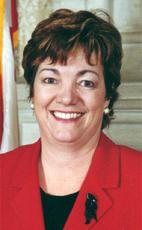Mr. Speaker, the government believes that a healthy economy can and must flow from a healthy environment.
We owe it to our children to preserve and enhance the extraordinary environment with which we have been blessed. In doing so we can and must set the foundation for a whole new era of economic growth. We owe it to our children to explore the competitive advantage which a commitment to the environment will bring.
All of us have to change our behaviour in big and small ways beginning here in government. Individual Canadians have already been doing that in their own lives.
The challenge for us in Parliament is to find means of accelerating the move toward sustainable development. That is why the government stated in the throne speech that the concept of sustainable development will become an integral part of government policies.
Our Parliament must be a leader when it comes to protecting our environment, preventing pollution and promoting environmental industries. We must take the lead by making the government more ecologically sensitive.
We must understand that government policies have an important bearing on people's attitude. Depending on the approach adopted by Parliament, Canada will or will not become a world leader in sustainable development.
The blunt fact is that we can only succeed if we forge a partnership with all Canadians. Our government must set an example and must show leadership. We cannot do it alone. We need to work in partnership and in harmony with the provinces and territories, with labour and environmental groups and business. Most of all, we have to tap the talent and goodwill of individual Canadians.
We will only reach our goal of combining a strong economy with a strong environment when we include every Canadian in that effort.
Today, in that spirit of reaching out, in that spirit of inclusion, I am pleased to announce that the government will fulfil another red book commitment, our decision to proclaim the act to establish the national round table on the environment and the economy.
Parliament voted to establish the round table as a 25-person body composed of a broadly representative membership from across the country. It must reflect the need for concerted action in all areas of Canada if we are to achieve sustainable development.
The round table's purpose is to act as a catalyst in identifying, explaining and promoting the principles and practices we must adopt if we are to meet the needs of our generation without compromising the ability of future generations to live in a clean environment.
This round table can do research on critical aspects of sustainable development. It will provide useful advice to every sector in our country regarding ways to integrate environmental and economic considerations into decisions and actions. In my opinion, the round table can especially facilitate the creation of a partnership to make sustainable development a concrete reality in Canada.
In order to have this partnership, we must ensure that people have confidence in our innovative process, and we must give them the opportunity to fully participate. As well, we must take into account the opinions and interests of everyone, and a real commitment to reach a consensus is also necessary.
The round-table process has proven successful in Canada, and other countries are also using it. Indeed, a good number of provincial and local round tables have managed to solve sensitive and contentious issues by way of a consensus.
The national round table must have a strong legislative mandate to fully play its role of catalyst and promoter regarding environmental and economic issues. I am very pleased that the Prime Minister himself has agreed to chair this round table.
Membership on the round table on the environment and the economy must provide the links we need with communities, regions and provinces that are already taking creative ideas and translating them into practical solutions. The round table can and should involve Canadians at all levels of society, Canadians who can contribute to our collective goal of sustainable development by reaching out and motivating others to take action.
Openings on the round table will soon be published in the Canada Gazette , but here and now I want to ask interested members of Parliament to include applications from interested Canadians. In addition, I would be pleased to receive direct suggestions from members of Parliament on the balanced membership of the round table.
Through its unique character and make-up the round table is well positioned to seek new and pragmatic solutions to the problems facing our country and the world. The national round table can play a lead role in the current efforts to develop a sustainable framework for Canada.
Through this act we are effectively charging the round table with becoming a real agent for change in Canada.
We must find innovative and sensible ways of making Canada a leader in sustainable development. Together, we must find ways of changing how we think and particularly how we act. Sustainable development must become an every day reality. Mr. Speaker, I am disturbed when I see that even the Government of Canada ignores our own environmental capabilities in its policy. What we are doing here in this House should be a signal to all Canadian governments to follow suit.
Each and every one of us is responsible for the prosperity of our economy and the cleanness of our environment. All of us, federalists as well as separatists, are responsible for our future. This is why we must give all Canadians an opportunity to express themselves and to get involved. In this sense, the government's decision to table an act creating the national round
table on the environment and the economy is an important step, and I urge hon. members to sit at that table and to get involved.

